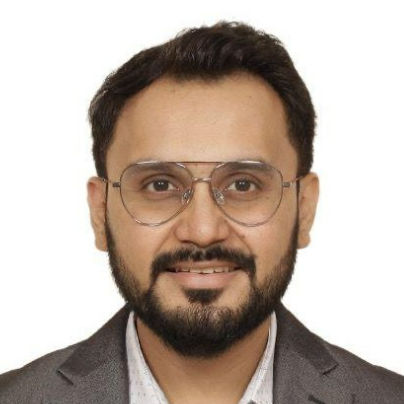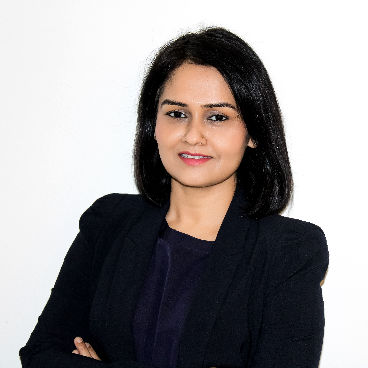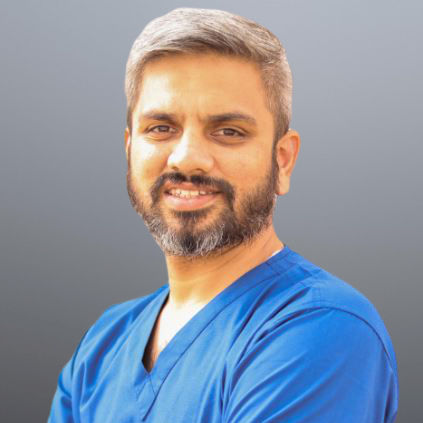Welcome User
Relevance
Consult with Oral and Maxillofacial Surgeons - Orthognathic surgeons (57 doctors)

Dr. Mohamed Shahid
Oral and Maxillofacial Surgeon
9 Years • BDS, MDS (ORAL & MAXILLOFACIAL SURGERY), MFDS RCPS ( Glasgow).
Kanyakumari
Alba Hospital, Kanyakumari

Dr. Sudarsan Sen
Oral and Maxillofacial Surgeon
9 Years • BDS, MDS (ORAL & MAXILLOFACIAL SURGERY)
Howrah
32 PEARLS, Howrah

Dr. Gourab Paul
Oral and Maxillofacial Surgeon
5 Years • BDS,MDS(ORAL AND MAXILLOFACIAL SURGERY)
Kolkata
SOLACE OF SOULS(SOS) HEALTH CARE, Kolkata
(50+ Patients)

Dr. Ankit Khandelwal
Oral and Maxillofacial Surgeon
13 Years • BDS, MDS ( Oral & Maxillofacial Surgery) , PGDCC, Fellowship in Head & Neck Oncology
Kolkata
Gajanan Multispeciality Clinic, Kolkata
(75+ Patients)
Dr. Suman Yadav
Oral and Maxillofacial Surgeon
12 Years • MDS (ORAL &MAXILLOFACIAL SURGERY)
Ghaziabad
The Center For Dental Care, Ghaziabad
Dr. Pradnya Vasudev
Dentist
25 Years • BDS
Pune
Apollo Clinic, Nigdi, Pune
Dr Sumanth R
General Physician
2 Years • MBBS
Bengaluru
PRESTIGE SHANTHINIKETAN - SOCIETY CLINIC, Bengaluru

Harshitha Reddy
Periodontist
7 Years • MDS
Manikonda Jagir
Apollo Clinic, Manikonda, Manikonda Jagir

Dr. Pragati Shubha
Ent Specialist
11 Years • ENT & Facial Plastic Surgery, MBBS, DNB (ENT), Surgical Fellowship in Functional and Aesthetic Rhinoplasty, under Dr. Ignazio Tasca, Department of Otorhinolaryngology
Gurugram
APOLLO SUGAR CLINICS GURUGRAM, Gurugram

Dr. Ajay Mohan
Oral and Maxillofacial Surgeon
8 Years • BDS,MDS Oral & Maxillofacial Surgery, Fellowship in Cleft lip & palate & craniofacial Surgery Fellowship in Aesthetic Medicine
Chennai
Apollo Spectra Hospitals, MRC Nagar, Chennai
Oral and Maxillofacial Surgery
At Apollo 24|7, we make it easy to book an appointment with a top-notch oral surgeon or dental surgeon. Our user-friendly online platform allows you to schedule a consultation with a trusted oral and maxillofacial surgeon at your convenience. With a wide network of experienced specialists and well-equipped hospitals/clinics, Apollo 24|7 ensures that you receive the best possible care for your oral and maxillofacial needs. Don't wait any longer; book your appointment today and take the first step towards a healthier smile and improved overall well-being.
What is Oral and Maxillofacial Surgery?
Oral and maxillofacial surgery is a highly specialised branch of medicine focused on surgical treatments involving the face, mouth, jaws, and neck. This field is fundamental in healthcare due to its comprehensive approach that combines dental, medical, and surgical expertise to address complex conditions. It treats a variety of issues from simple tooth extractions to advanced reconstructive surgeries of the facial skeleton.
The speciality’s significance lies in its ability to improve essential functions such as chewing, speaking, and breathing, alongside enhancing facial aesthetics. Due to its impact on quality of life and overall health, oral and maxillofacial surgery is a crucial component of modern healthcare services.
Who is an Oral and Maxillofacial Surgeon?
An oral surgeon, also known as a dental surgeon, is a clinician who has undergone extensive training to specialise in the field of oral and maxillofacial surgery. Typically, this requires qualifications in both dentistry and medicine, culminating in a dual degree. Oral and maxillofacial surgeons are skilled in diagnosing and treating a wide array of conditions affecting the mouth, jaws, face, and neck.
These include dental implant placements, facial trauma surgery, corrective jaw operations, and complex tooth extractions, among others. Their expertise is vital in managing both aesthetic and functional aspects of the craniofacial complex, making them indispensable in surgical dental care and facial reconstruction.
What Does an Oral and Maxillofacial Surgeon Do?
An oral and maxillofacial surgeon is a highly trained specialist who addresses a wide range of conditions affecting the mouth, jaws, face, and neck. Their expertise spans from routine procedures to complex surgeries, making them integral in both emergency and planned care settings.
Dental Implant Procedures: As a dental implant doctor, the surgeon installs artificial structures to replace missing teeth, which involves bone grafting and implantation of prosthetic devices. This role is crucial in restoring functionality and aesthetics to patients' dental health.
TMJ Treatments: Functioning as a TMJ doctor, the surgeon diagnoses and treats disorders related to the temporomandibular joint, a key area that affects jaw movement and overall oral function. Treatments can range from non-invasive therapies to surgical interventions.
Cancer Care: As an oral cancer surgeon, they play a critical role in the surgical management of oral cancers, involving the removal of tumours and affected tissue, and potentially, reconstructive surgery to restore form and function after cancer removal.
Emergency Care: They often handle facial injuries, including fractured bones, soft tissue injuries, and emergent conditions that require immediate attention to prevent long-term damage.
Corrective Surgery: This includes surgeries to correct jaw misalignments, cleft lip and palate, and other congenital anomalies that can impact speech, eating, and breathing.
Through these activities, oral and maxillofacial surgeons provide comprehensive care that significantly improves patients' quality of life, underscoring their essential role in healthcare. Their daily work requires a blend of precision, medical knowledge, and the ability to provide compassionate care under pressure.
What are the Other Sub-specialities of Oral and Maxillofacial Surgery?
Oral and maxillofacial surgery encompasses several sub-specialities, each focusing on different aspects of facial and dental health. Understanding these areas provides insight into the comprehensive care these specialists provide. Based on the treatments offered, the speciality of oral and maxillofacial surgery can be further divided into the following types:
Orthognathic Surgery: This involves correcting jaw alignment and deformities, enhancing both function and appearance. Often coordinated with orthodontic treatment, this surgery helps patients with difficulties in chewing, speaking, and breathing, or those with sleep apnoea.
Facial Trauma Surgery: A facial surgery doctor addresses injuries from accidents, including facial lacerations, broken bones, and intraoral damage. The goal is to restore appearance and function through meticulous surgical repair of the facial structures.
Cleft and Craniofacial Surgery: This sub-speciality focuses on correcting congenital deformities of the craniofacial skeleton, such as cleft lip and palate. Surgeons in this field work closely with a team of specialists to improve the patient's ability to eat, speak, and breathe normally.
Temporomandibular Joint (TMJ) Surgery: Surgeons treat disorders of the TMJ, which can cause pain, dysfunction, and limited movement of the jaw. Treatment ranges from minimally invasive procedures to more complex surgeries depending on the severity of the condition.
Head and Neck Cancer Surgery: This critical area involves the removal of tumours in the head and neck region. Surgeons often collaborate with oncologists to provide comprehensive cancer care, including postoperative reconstructive efforts.
Reconstructive Surgery: Following trauma, cancer surgery, or correction of congenital deformities, reconstructive surgery is performed to restore form and function. This often involves complex, multi-stage procedures to achieve optimal outcomes.
Dental Implant Surgery: A dental surgeon installs implants as a durable solution for tooth loss. This procedure not only restores the aesthetics but also the functionality of the patient’s dentition, allowing them to eat and speak comfortably.
These sub-specialities illustrate the broad and impactful nature of oral and maxillofacial surgery, highlighting the vital roles these surgeons play in enhancing patient health and quality of life.
What are the Oral and Maxillofacial Surgery Examinations or Tests Performed by the Oral and Maxillofacial Surgeon?
Oral and maxillofacial surgeons perform a variety of diagnostic examinations and tests to assess and treat conditions affecting the mouth, face, jaws, and neck. These tests are crucial for developing effective treatment plans. Here are some of the most common diagnostic procedures used within this speciality:
Radiographic Imaging: This includes X-rays, CT scans, and MRI scans, which provide detailed images of the bone and soft tissues in the craniofacial region. These images help in diagnosing fractures, tumours, and other abnormalities.
Biopsy: Small samples of tissue are taken from areas with suspected pathology to diagnose conditions like oral cancer or cysts. This is critical for determining the exact nature and extent of the disease.
3D Imaging: Advanced three-dimensional imaging techniques are used to plan complex surgeries, such as reconstructive procedures, implants, and orthognathic surgery. This allows precise mapping of the anatomy and facilitates better outcomes.
Panoramic Radiographs: These provide a comprehensive view of the entire mouth, showing all the teeth in both the upper and lower jaws on a single X-ray. This is particularly useful for assessing tooth development, placement, and wisdom teeth extraction planning.
Cone Beam Computed Tomography (CBCT): CBCT offers 3D images of bone and is often used to plan dental implant surgery, evaluate the jaws and face, and assess the sinuses.
Endoscopy: In cases involving the interior of the sinus or nasal cavity, endoscopy allows for a detailed view and is useful in diagnosing conditions hidden from plain sight.
These examinations enable oral and maxillofacial surgeons to provide thorough assessments and to tailor treatments to individual needs. If you need such specialised diagnostic services, you might consider a consultation to book oral and maxillofacial surgeon appointments.
What are the Common Conditions & Diseases that Oral and Maxillofacial Surgeons Treat?
Oral and maxillofacial surgeons tackle a wide array of conditions, focusing on diseases that affect the mouth, jaws, face, and neck. Here are the top 15 conditions they commonly manage:
Wisdom Teeth Issues: Impacted or misaligned wisdom teeth that may cause pain and infection.
Dental Implants: Replacement of missing teeth with artificial structures to restore dental function and aesthetics.
Jaw Misalignment: Corrections required for improper jaw alignment that can affect chewing and speech.
Tooth Extractions: Removal of teeth due to decay, disease, or trauma.
Oral Cancers: Diagnosis and surgical treatment of cancers in the mouth, tongue, and throat.
TMJ Disorders: Conditions affecting the temporomandibular joint, causing pain and functional impairment.
Facial Trauma: Treatment of facial injuries, including fractures and soft tissue damage.
Cleft Lip and Palate: Congenital deformities affecting the oral and nasal structures, requiring surgical correction.
Sleep Apnoea: Surgical interventions to address obstructive sleep apnoea caused by anatomical blockages.
Bone Grafts: Preparatory surgeries for implants or reconstructive surgeries involving bone transplantation.
Salivary Gland Disorders: Management of issues like blockages or infections in the salivary glands.
Sinus Lifts: Elevating the sinus floor to allow for the placement of dental implants in the upper jaw.
Cyst and Tumour Removal: Excision of benign or malignant growths in the oral and facial regions.
Orthognathic Surgery: Surgical realignment of the jaws to improve function and appearance.
Facial Cosmetic Surgery: Procedures to enhance facial symmetry and aesthetics, including cheek or chin adjustments.
These conditions highlight the broad and impactful role of oral and maxillofacial surgeons in addressing significant patient concerns related to facial and dental health.
Reasons to See an Oral and Maxillofacial Surgeon
Visiting an oral and maxillofacial surgeon is crucial when encountering specific symptoms or conditions related to the mouth, jaw, or facial regions. Here are the primary reasons:
Persistent Pain: Continuous or severe pain in the jaw, mouth, or face that affects daily activities.
Functional Issues: Difficulty in chewing, swallowing, or opening the mouth fully.
Trauma: Facial injuries from accidents that require surgical intervention.
Oral Growths: Presence of lumps or lesions in the mouth that do not heal.
Cosmetic Concerns: Desire for aesthetic improvements or corrections to facial structures.
For those unable to visit in person, an online oral and maxillofacial surgeon consultation offers a convenient way to access expert advice and care.
What Types of Procedures do Oral and Maxillofacial Surgeons Perform?
Oral and maxillofacial surgeons are trained to perform a wide range of procedures that can be categorized into therapies and surgeries, each addressing specific health issues within the speciality.
Top Therapies:
Pain Management: Treatments aimed at alleviating pain caused by TMJ disorders or chronic facial pain.
Infection Control: Procedures to treat infections in the salivary glands, jaws, or neck.
Orthodontic Preparatory Treatments: Pre-surgical interventions to prepare the mouth for braces or other orthodontic devices.
Non-surgical TMJ Treatments: Use of oral appliances or medication to manage temporomandibular joint dysfunction.
Facial Injections: Botox or dermal fillers used to treat aesthetic or functional issues like wrinkles or facial asymmetry due to muscle spasms.
Top Surgeries:
Wisdom Tooth Extraction: Removal of impacted or problematic wisdom teeth.
Dental Implants: Surgical placement of artificial roots to support prosthetic teeth.
Jaw Surgery (Orthognathic Surgery): Realignment of the jaws to improve function and appearance.
Cleft Lip and Palate Repair: Correction of congenital deformities of the lip and palate.
Facial Trauma Surgery: Reconstruction of facial structures damaged by injury.
Cancer Reconstruction: Rebuilding parts of the mouth or face after cancer surgery.
Bone Grafting: Addition of bone to the jaw to support implants or correct defects.
Sinus Lift: Elevation of the sinus floor to allow for implant placement in the upper jaw.
Sleep Apnoea Surgery: Procedures to remove or reshape tissue obstructing the airway.
Facial Cosmetic Surgery: Procedures such as rhinoplasty or cheek augmentation to enhance facial aesthetics.
Understanding these procedures can help patients make informed decisions about their care, especially when considering the dental surgeon fee or the maxillofacial surgeon fee, which can vary significantly depending on the complexity and type of procedure performed.
Why Choose an Apollo 24|7 Oral and Maxillofacial Surgeon?
Choosing an oral and maxillofacial surgeon at Apollo 24|7 offers several advantages. Our team of highly skilled and experienced surgeons are dedicated to providing personalised care and advanced treatment options.
With their extensive training and expertise in managing complex dental and facial conditions, you can trust that you are in capable hands. Apollo 24|7 offers seamless access to consultations, both online and in-clinic, ensuring that you receive comprehensive care tailored to your specific needs.
Our modern facilities and patient-centric approach prioritise your comfort and well-being throughout your treatment journey.
What to Expect When Visiting an Oral and Maxillofacial Surgeon?
When you visit an oral and maxillofacial surgeon, you can anticipate a thorough and professional healthcare experience. Here’s what typically happens during a visit:
Initial Consultation: The surgeon will review your medical and dental history, discuss your symptoms, and determine your needs. This step may include looking at dental surgeon reviews or maxillofacial surgeon reviews to choose the best specialist for your case.
Detailed Examination: Expect a comprehensive physical examination of your face, jaw, and mouth to assess the condition. This might include digital scans or X-rays.
Discussion of Options: The surgeon will explain the possible treatment options, outlining the benefits and risks associated with each procedure.
Treatment Planning: A customised treatment plan will be developed to address your specific medical or cosmetic concerns.
Follow-up Care: Guidance on post-operative care and scheduling follow-up visits to monitor recovery and outcome.
For those looking to find a specialist, searching for a dental surgeon near me or maxillofacial surgeon near me can help locate the nearest qualified professionals, ensuring convenient access to expert care.
How Can I Get an Appointment With an Oral and Maxillofacial Surgeon?
Booking an appointment with an oral and maxillofacial surgeon at Apollo 24|7 is a simple and convenient process:
Online Booking: Visit the Apollo 24|7 website and navigate to the "Book Appointment" section. Select "Oral and Maxillofacial Surgery" as the speciality and choose your preferred surgeon. Select a suitable date and time slot, and complete the necessary details to confirm your appointment.
Apollo 24|7 App: Download the Apollo 24|7 app on your smartphone. Log in or create an account, and follow the prompts to book an appointment with an oral and maxillofacial surgeon. Choose your preferred surgeon, date, and time, and confirm your appointment through the app.
Referral: If you have been referred to an oral and maxillofacial surgeon by your dentist or general practitioner, contact Apollo 24|7 to schedule an appointment and provide the necessary referral details.
FAQs
What is oral and maxillofacial surgery for?
Oral and maxillofacial surgery addresses disorders, injuries, and diseases affecting the mouth, jaw, face, and neck. It includes procedures like tooth extractions, corrective jaw surgery, and treatments for TMJ disorders, facial trauma, and oral cancers, aiming to improve functionality and aesthetics.
Is oral and maxillofacial surgery safe?
Oral and maxillofacial surgery is generally safe when performed by qualified surgeons. As with all surgical procedures, it involves some risks, which depend on the individual's health and the complexity of the surgery. Pre-operative assessments help minimize potential complications.
How painful is oral and maxillofacial surgery?
The level of pain experienced after oral and maxillofacial surgery varies, depending on the procedure's extent. Modern surgical techniques and pain management protocols typically ensure discomfort is minimal and manageable with prescribed medications.
Can I eat after oral and maxillofacial surgery?
Post-surgery dietary restrictions are common. Initially, patients are advised to consume soft foods or liquids and avoid chewing from the surgery site to prevent complications and aid healing.
How long is oral and maxillofacial recovery?
Recovery time varies widely depending on the surgery's complexity. Minor procedures may require a few days of recovery, while more extensive surgeries might need several weeks or months for complete healing.
Can I eat rice after oral and maxillofacial surgery?
Eating rice immediately after surgery is not advised as it can irritate the surgery site. Soft, bland foods are recommended initially, with gradual reintroduction of normal diet as healing progresses.
What is the success rate of oral and maxillofacial surgery?
The success rate of oral and maxillofacial surgery is high, particularly for procedures like dental implants and jaw correction. Success largely depends on the surgeon's expertise, patient compliance with post-operative care, and the individual's overall health.
Who needs oral and maxillofacial surgery?
Individuals with congenital facial deformities, impacted teeth, TMJ disorders, facial injuries, or oral cancers may require oral and maxillofacial surgery to restore function, relieve pain, or improve aesthetics.
What anaesthesia is used for oral and maxillofacial surgery?
Anaesthesia options range from local anaesthesia, sedation, to general anaesthesia, based on the procedure's complexity and the patient's comfort and health needs
What are the side effects of oral and maxillofacial surgery?
Common side effects include swelling, bruising, discomfort, and temporary numbness. Rare complications might involve bleeding, infection, or nerve damage, which are typically manageable with proper care and follow-up.